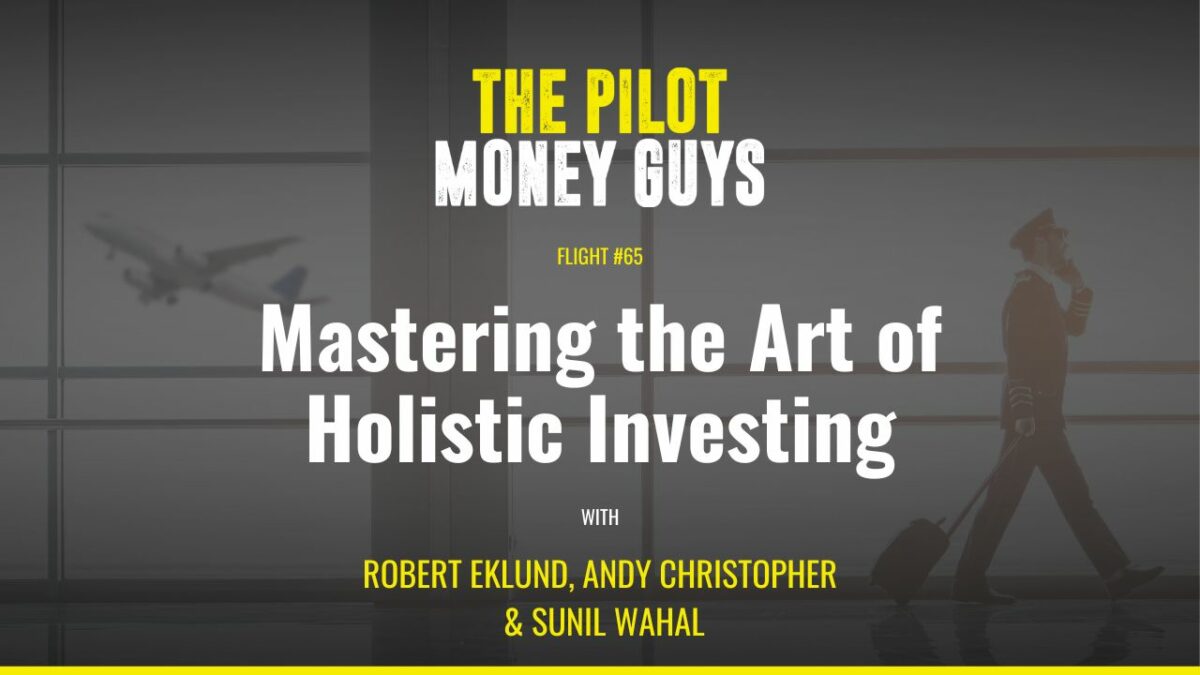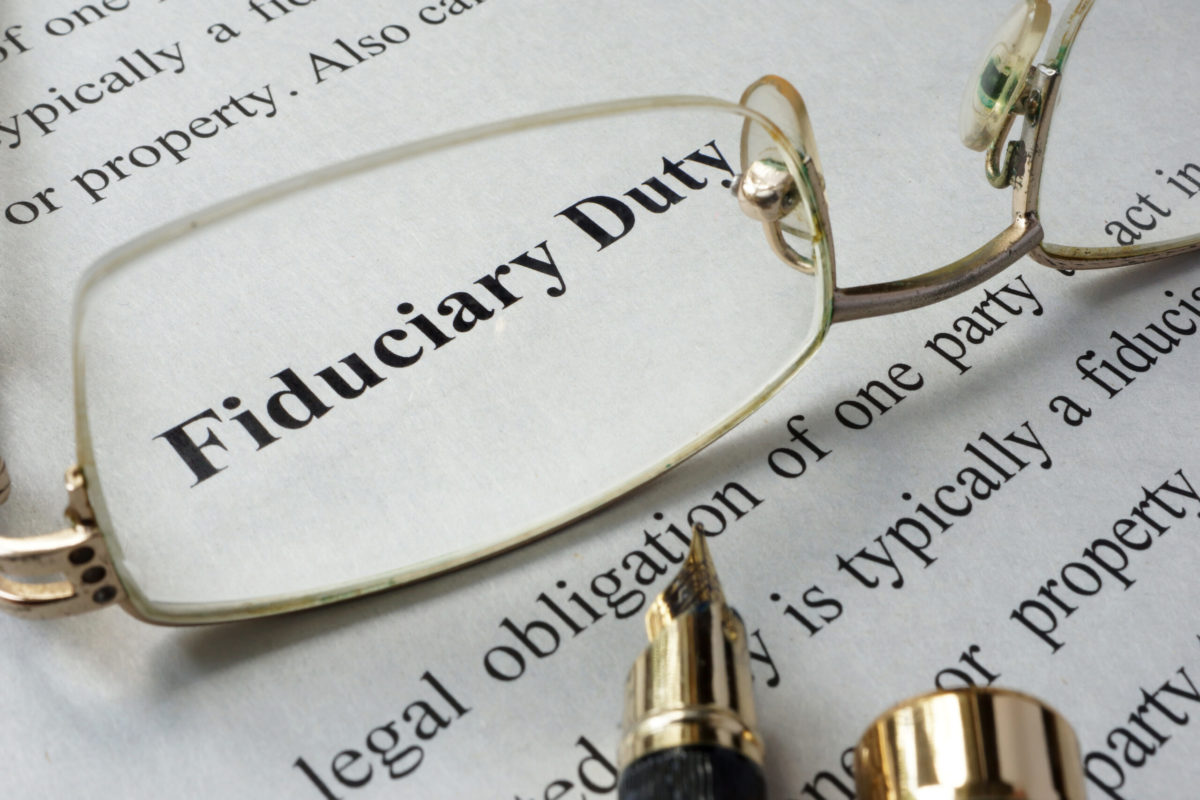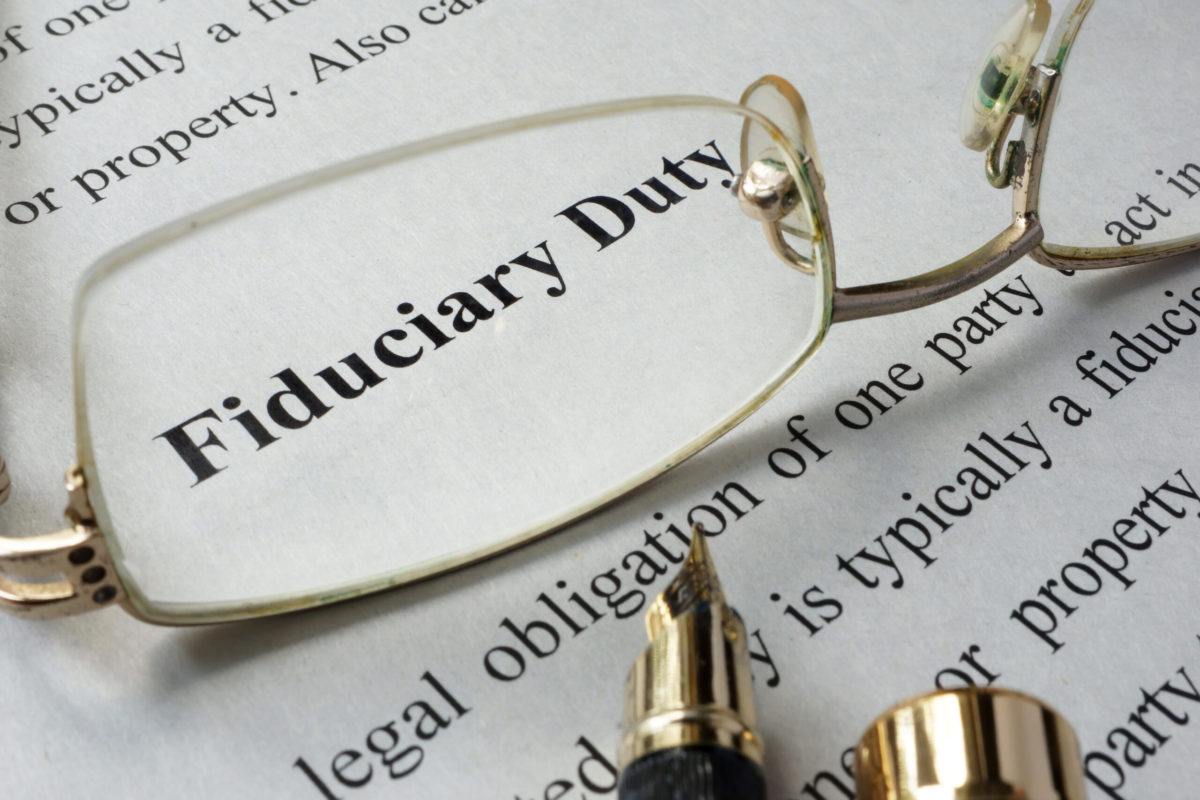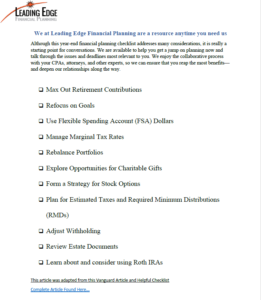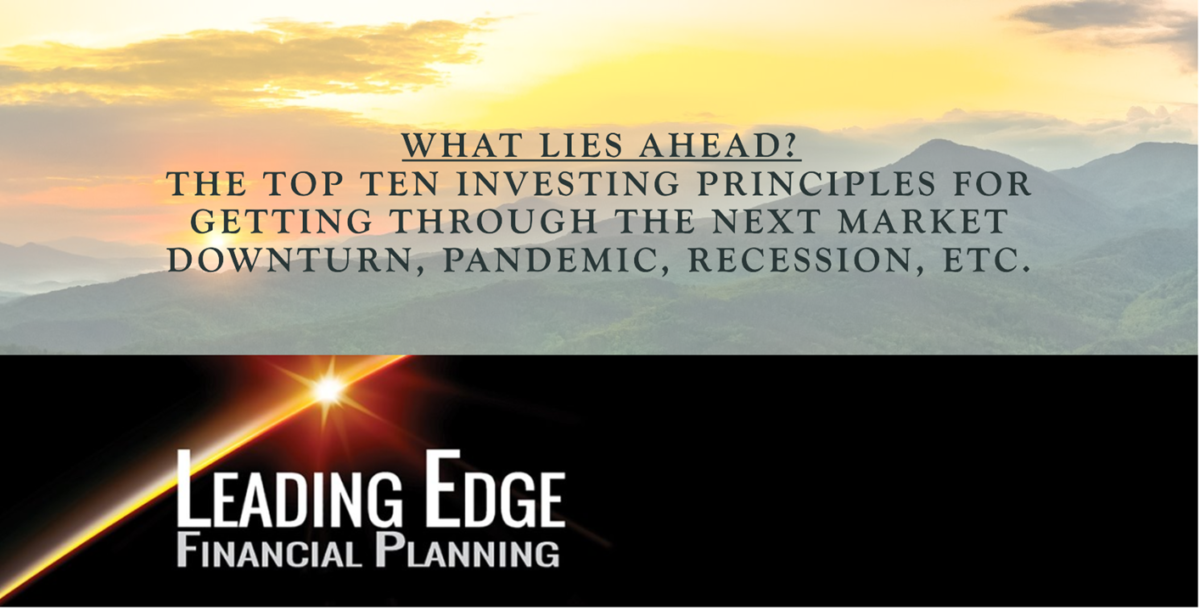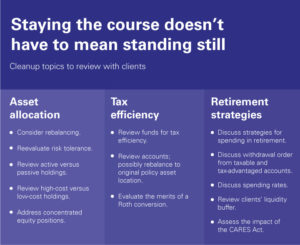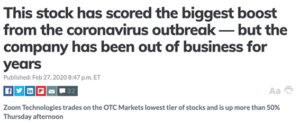The Fiduciary.
The first time I heard the term "fiduciary," I said to myself, "fidu…what? Sounds fancy." Then I fell asleep. Admittedly, this topic appears boring and could put my 16-year-old boy all hopped up on Mountain Dew to sleep. But, here is a wake-up call - knowing who is and who is not a fiduciary is the first step in finding someone actually to help you with your money.
So, what is a fiduciary?
A fiduciary is someone who acts on behalf of another person and has a fundamental obligation to put their clients' interests ahead of their own, with a duty of undivided loyalty and utmost good faith. Fiduciaries are bound both legally and ethically to act in the client's best interests. SEC Chairman Jay Clayton defined the fiduciary responsibility this way, "This duty - comprised of both a duty of care and a duty of loyalty - is principles based and applies to the entire relationship between the investment adviser and the client."
When someone is a fiduciary, it applies to the "entire relationship," not parts of it. It is the highest standard in the financial world. You may be saying, "Okay. Great! Aren't all financial advisors fiduciaries?" I would say, "NO!" Unfortunately, the term financial advisor is very nebulous and can apply to brokers (registered representatives), IARs (Investment Advisor Representatives), or hybrid advisors who are dual-registered and can act as both a broker and IAR. The bottom line is only IARs who are only IARs (not dual-registered) are fiduciaries always. They must do what is in your best interest, even if it hurts them. They are like financial knights, putting your kingdom before their own monetary gain.
You, "Great Rob, what about Bernie Madoff? Wasn't he a fiduciary?" You are absolutely correct!
Yes, Madoff was a fiduciary advisor (before that, he was a highly successful broker). I am definitely not saying that just because someone is a fiduciary, they will do what is best for you and your money. However, I am saying, by law, they are supposed to do precisely that (Madoff was sentenced to 150 years in federal prison). There are criminals in the world, and you need to take steps to make sure they are not defrauding you. Fortunately, many changes have taken place since Madoff and, perhaps one of the most important was the shift to a custodian system. A custodian system is where your advisor does not hold your money. Instead, a custodian like Charles Schwab retains it, and you can independently check your accounts to make sure it is where you think it is…not off in a Ponzi scheme. So, make sure your fiduciary IAR has a third-party custodian, and they don't hold your money themselves.
You, "How did you gather this knowledge?"
I have been interested in investing ever since I was knee-high to a grasshopper. However, I acquired this fiduciary knowledge several years ago when I was a newly minted first officer before becoming an IAR and before Reg BI (discussed below). At that time, I began a journey to find a trustworthy financial advisor for myself. As a military officer, money had not been a primary concern, and, to be honest, I didn't have enough of it to matter. But as I began my major airline career (2013), I realized I would soon have enough money that I had better start thinking about how to manage it. I knew I needed help. My focus was on learning how to be a First Officer while still juggling my Air Force Reserve career. Many questions ran through my head. The biggest and most important was, "How can I protect my money?" The money I had worked so hard to accumulate. What I found surprised me.
Many investment advisors wanting my business were brokers. Some of these brokers were very intelligent and could sell with the best. One problem, they only had a "suitable" duty of care to me and my money. What does "suitable" mean? It means they only had to put my money into investments they deemed…wait for it…adequate. They did not need to give me advice that was best for me. To be clear, I am sure there are many respectable, ethical brokers out there; I am not saying there aren't. But, with a suitable standard, they had no legal obligation to do right by me and my money.
For example, say I had two financial advisors: an IAR (fiduciary) and a broker (suitable in 2013). Let us say they both had the option to put me in one of two identical funds, except one fund has higher fees. The IAR, legally, could not put me in the higher fee fund. The broker could legally put my money into the higher fee fund and likely would if they were getting paid to do so, as long as they deemed it adequate.
You, "Okay, but that was then, right? What about now and Reg BI?"
Regulation Best Interest (Reg BI - effective January 1st, 2020), has attempted to change the relationship and move the ethical bar higher for brokers. Instead of only having a suitable duty, they are now supposed to have a "best interest" duty. The regulation takes several steps to raise the bar (like having to disclose conflicts of interest); however, it does not change the dynamics of how a broker operates. A broker is still paid by a 3rd party to put their client's money in certain funds. This relationship has not changed. Now, however, the SEC expects them to use the client's best interest.
You, "How can they do what's in my best interest if they are getting paid by someone other than me to put my money into particular funds?"
Great question; you are not alone asking this. Some say Reg BI hardly moves the bar; some say it moves it a lot. Here is my take… The regulation does not and cannot change the dynamics of how a broker operates via a 3-party exchange. The broker will still have the broker, the client, and the entity paying the broker to put the client into their particular funds (3 parties). This higher standard is potentially good, but brokers still get paid by people other than the client. IARs, on the other hand, are fee-only, meaning the client is the only one who pays them (i.e., IARs are not paid by mutual funds or companies to get you to invest with them). Per the Investment Advisors Act of 1940, IARs have always had a higher fiduciary standard and deal with this 2-party exchange. There is the client and the IAR, that's it (2 parties). There is no incentive for an IAR to put your money into funds that may not be in your greatest interest.
You, "So how are IARs paid?"
Typically, IARs are paid by you quarterly. They get paid a percentage of how much money they manage for you. In the business, this is called AUM (Assets Under Management). It means, if you do well, they do well (Leading Edge charges pilots 0.85 % up to the first $1 million). So out of every $1,000 you have invested, you will pay us $8.50 per year (paid quarterly - $2.13) or less than 2 cups of Captain lattes per year (This is different from a broker who is paid to sell you a product and gets paid regardless if your money does well or not).
You, "Why would I pay someone a percentage of AUM?"
Well, think about having a wingman, co-pilot, or workout buddy. You are more likely to get where you want to go if you have someone helping you and encouraging you to get there. IARs help you stay the course when times get tough (Extremely wealthy people pay hedge funds similarly, but a much higher percentage of AUM). You do it because of the value you get from it. Vanguard has studied certain financial advisors' value and determined that advisors can add 3% to the client's portfolios. This sounds like a pretty good investment to me!
You, "Okay, so I pay you $8.50 per $1,000, but you can add value of $30 per $1,000?"
Although this is not guaranteed, this is precisely the idea. Generally speaking, if an advisor starts guaranteeing returns, tell them you'll call them back, but our job is to add value.
You, "How or why is this?"
Morgan Housel (the author of The Psychology of Money) has a great point - Napoleon once said, "a genius is the man who can do the average thing when everyone else around him is losing his mind." A good advisor is someone who can help you be average when everyone else is losing their mind. If you can do this, you can make a lot of money. Good advisors help you do just that. Think of being an airline pilot; much of our training deals with emergency training. What is the goal? To get us to do the average thing when most people are losing their minds. IARs can help instruct you through these market emergencies.
Furthermore, IARs give you comprehensive financial planning. Comprehensive financial planning may include Estate Planning, Tax Planning Strategies, Risk Management, College Savings, Employee Benefits Optimization, Insurance Planning, Career Planning, and Financial Independence Planning. These services can help you sleep better at night knowing you have taken care of your future self and loved ones, which in my book is priceless.
You, "So I get access to all of these types of planning with my 0.85% payments?"
Yes, most IARs offer many of these services, included with your quarterly fee. If you are familiar with a retainer, this is similar. You pay quarterly fees and have access to all kinds of advice/planning all year long. At Leading Edge, all of these services, and more, are offered and are included with your quarterly 0.85% payment.
In airline terms, when passengers pay for a ticket, that ticket includes deviations around thunderstorms, ATC delays, de-icing costs, etc. When you pay an advisor, you get almost all of the fixings with investment advice.
You, "Sounds great, but what does fee-only mean?"
Fee-only means you are paying both commission (and other custodial fees) and advisor fees. Simply put, when any trade is made establishing an investment position, there are commissions paid to brokers. Brokers make the trades but are simply the mechanism for buying and selling. In this capacity, they do not act as advisors and are not part of the decision making process. They do not get paid by the IAR and do not pay the IAR. These trades are separate from a broker selling you a product for a fee. Now brokers giving advice, not acting as fiduciaries, may come up with all kinds of reasons why they are better for you than an IAR. It should only remind you of a quote by Upton Sinclair, "It is difficult to get a man to understand something when his salary depends upon his not understanding it." I believe this is what Reg BI attempts to do. It tries to get brokers to act in the client's best interest, but their salary often depends on him not doing so. I fear that many brokers will continue finding ways to put clients in funds that pay the brokers. Even in the regulation itself, the term "best interest" is ill-defined and very open to interpretation. Time will tell how the SEC enforces Reg BI, but it will not change the dynamics of a 3-party (broker) relationship vs. a 2-party (IAR) relationship. A fiduciary IAR is the highest standard and likely will be for the foreseeable future. Reg BI does take steps to ensure brokers disclose conflicting relationships, which is a good thing. However, the fact they have to admit the relationship is irrelevant, in my opinion. It makes me think of getting hit with a rock by a bully. His parents have come along and told him he has to tell me he is hitting me with a rock before he does it…but he can still hit me with the rock. Understand, the bully can be quite crafty when explaining why hitting me with the rock is best for me, but I still get hit with a stone at the end of the day. Why would I sign up for that? I wouldn't, and I didn't.
Now, if you have fallen prey to some of these brokers, take comfort in knowing you aren't alone. Many hardworking people have trusted these people to do what was in their greatest interest, not knowing these brokers had no such obligation. Several studies have shown that most investors don't understand their financial advisor's duty (or lack thereof). Many people believed their brokers were always legally bound to do what was best for them. Unfortunately, this was and is not the case. Again, only IARs (Investment Adviser Representatives), who do not wear broker hats ever, have a fiduciary duty to you at all times.
Back to my hunt for an advisor (pre-Reg BI)… Armed with this newfound fiduciary/suitable knowledge, I arranged a meeting with an advisor through my airline company's 401k plan. During the conversation, I asked, "Do you have a fiduciary duty to me?"
What should have been a simple yes or no, was instead a bunch of hemming and hawing, but no real answer. Not to be deterred, I asked again. This time I received another vague response, so I asked again. Finally, this advisor told me he only had a suitable responsibility (today, he would have told me he had a best interest responsibility). Case closed. He may have been a great advisor, but he had no legal obligation to do what was right for me. If he put me in a poor investment and lost all of my money, I had very little to no recourse.
Today, instead of deeming that same investment "suitable," there will likely be brokers who find ways to make those same investments "best interest." What I wanted was someone who had a legal obligation to me and my money. I wanted my financial advisor to do what was in my highest interest. Furthermore, I wanted someone who had no incentive to put me in a particular fund. For me, the fiduciary is the answer.
You may be saying, "Great Rob, but how do I find out if someone has a fiduciary responsibility to me?" This one is easy.
Ask the following question, "If I hire you as my advisor, do you always have a fiduciary duty to me?"If the answer isn't a fairly quick, "Yes." I advise looking elsewhere. If it is, follow it up with, "To be clear, you never put on a broker hat and always have a fiduciary responsibility to me?" The answer should again be, "Yes." Beyond asking, you should also be able to find out by looking at the disclosures on their website or looking at their Form ADV Part 2A/Firm Brochure or the new Client Relationship Statement (CRS) mandated by Reg BI.
When I became an advisor, I knew I wanted to do it the right way and only become an IAR (fiduciary). Thankfully, Leading Edge Financial Planning (LEFP) shares this belief. Our Form ADV Part 2A says this:
Item 10: Other Financial Industry Activities and Affiliations
No LEFP employee is registered, or has an application pending to register as a broker-dealer or a registered representative of a broker-dealer. LEFP only receives compensation directly from our clients. We do not receive compensation from any outside source nor do we pay referral fees to outside sources for client referrals.
If you have gotten this far and not fallen asleep, I thank you. As you now know, I am a fiduciary and vow to protect my clients’ hard-earned money with the highest devotion to their goals. If you want to chat further about this or any other subject, please give me a buzz at (707) 712-9387 or shoot me an email at robert@leadgingedgeplanning.com. Until next time, I hope you have only tailwinds and blue skies!
Robert Eklund, Financial Planner
Rob is a Southwest Pilot and soon to be retired Air Force Lieutenant Colonel. He grew up working on his family’s ranch in Colorado and went to high school in Alaska. In 2000, he graduated from the United States Air Force Academy, earning a Bachelor of Science degree in Legal Studies. Rob has served over twenty years in the Air Force, ten years on active duty, and over ten in the Reserves. During his military career he flew the C-130 while stationed in Germany and the KC-10 in California. Rob has accumulated over 700 hours of combat flying hours and participated in multiple Operations. He was hired by Southwest Airlines in 2013 and became a staff officer at USNORTHCOM’s Domestic Operations Division in 2016. While holding this position as an Air Planner, Rob helped areas recover from Hurricane disasters; specifically, he was called to active duty to aid in recovery efforts following Hurricane Maria.
While studying at the Academy, Rob discovered his enthusiasm for the study of personal finance and investing. As his military service comes to a close, he is excited to combine his passion for helping and protecting others with his enthusiasm for personal finance. This culminated in 2020 with Rob passing the Series 65 Uniform Investment Advisor Law Exam and joining the Leading Edge team as a fiduciary advisor. A fiduciary’s role comes naturally to him as he enjoys helping people whether that benefits him or not. Rob knows the tremendous trust clients place in their financial advisors, and it is his goal to grow that trust through the highest level of transparency and integrity. In his personal life, Rob married up to the love of his life and has been married for 18 years. He is overwhelmingly proud of his son, whom he recently donated a kidney.
Please remember that past performance may not be indicative of future results. Different types of investments involve varying degrees of risk and there can be no assurance that the future performance of any specific investment, investment strategy, or product made reference to directly or indirectly in this video will be profitable, equal any corresponding indicated historical performance level(s), or be suitable for your portfolio. Moreover, you should not assume that any information or any corresponding discussions serves as the receipt of, or as a substitute for, personalized investment advice from Leading Edge Financial Planning personnel. The opinions expressed are those of Leading Edge Financial Planning as of 03/18/2021 and are subject to change at any time due to the changes in market or economic conditions.

